Your cart is currently empty!
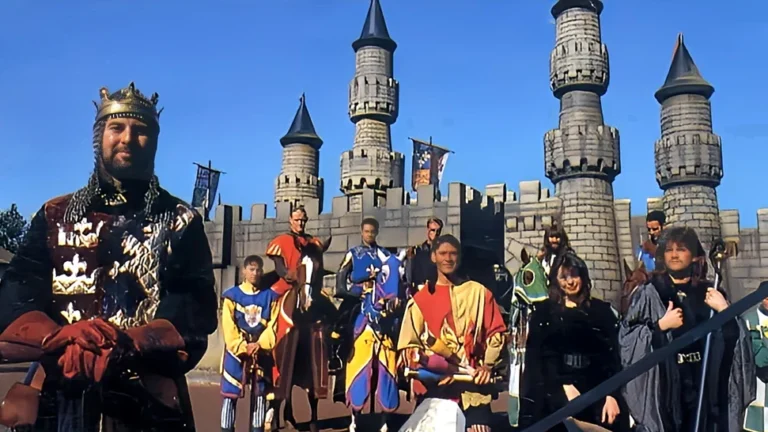
Park Hall & Camelot Theme Park
The 136-acre Park Hall estate, located near the village of Charnock Richard, was originally the site of a Benedictine monastery dating back to 669 AD. Over the years it changed hands several times and had quite a colourful history. By the 1900s the old manor house was an 18-bedroom hotel known as The Lake in the Woods. An old 13th century barn was being used as a function room.
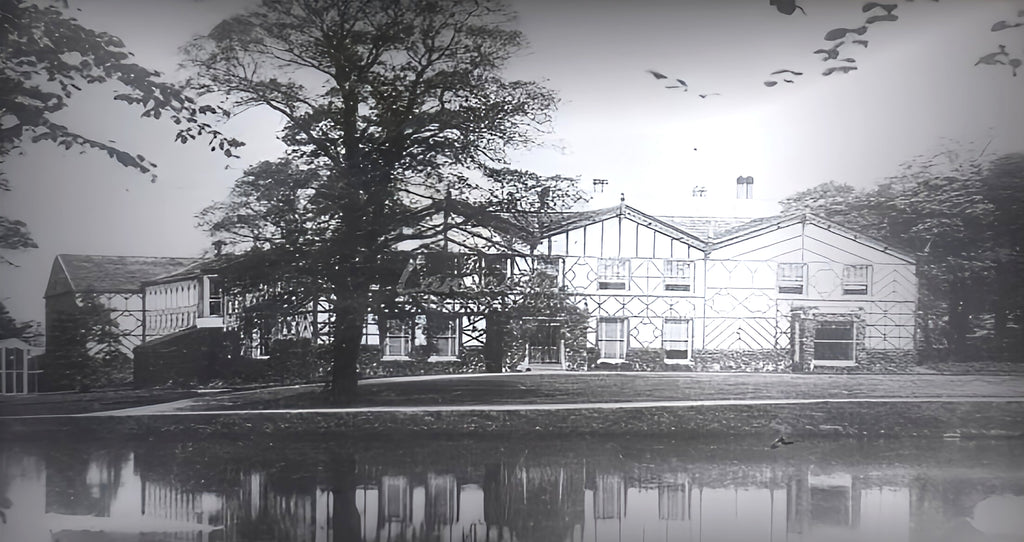
In 1934 the estate was purchased by hotelier Victor Few and the hotel was renamed the Park Hall. In 1930 Mr Few had built the Knights Court Hotel in Blackpool and in 1936 he also acquired the Gower Hotel in Euston Square (now known as the Euston Square Hotel). The produce for all three hotels was grown at Park Hall.
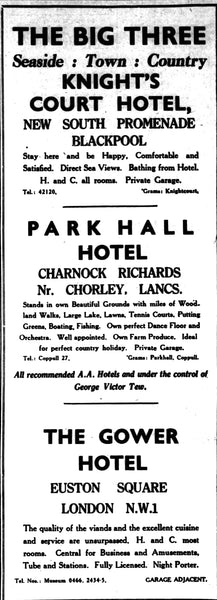
He soon announced that the site would become an executive sporting club with shooting, fishing, riding, golf and tennis. A secretive Gentleman’s Club was established which became popular with local businessmen. It was known that ‘ladies of ill repute’ would sometimes visit the establishment. In 1939 the club lost its alcohol license for a year after a police raid discovered they were selling alcohol to non-club members. It continued running throughout the war years.
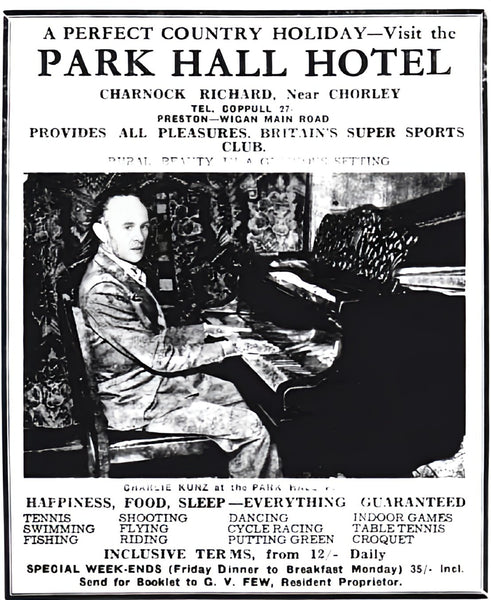
A new function room was built after the war and throughout the 1950s and 1960s it became a popular spot for dances, shows and wedding receptions. It became well known for its annual Black & White Minstrel shows. The Gentleman’s Club remained active. Most of the surrounding estate was rented out for farming with the land also used for fox hunting by a group known as the South West Lancashire Fox Destruction Society. The last hunt was held in 1971. But by the early-1970s, Victor Few was getting old and everything was looking rundown. The site had become infested with wild cats.
In February 1973 27-year old John Rigby acquired the estate from Mr Few for £210,000. Rigby grew up “in the slums of Salford” and got a job as a joiner for Wimpey Homes. He later started building his own houses and went on to establish a successful construction company which had made him a millionaire.
He soon announced plans for a major refurbishment of the site. The old hotel was extensively rebuilt and enlarged to 58 bedrooms – it basically ended up being a new building, with only the outside walls remaining. The old function room was demolished and replaced with a brand new 1000-seat cabaret room. The banquet hall was refurbished. The lake was drained and cleaned out. And most of this happened within the first 6 months. Rigby also announced plans to build an 8-000 seat indoor show jumping arena.
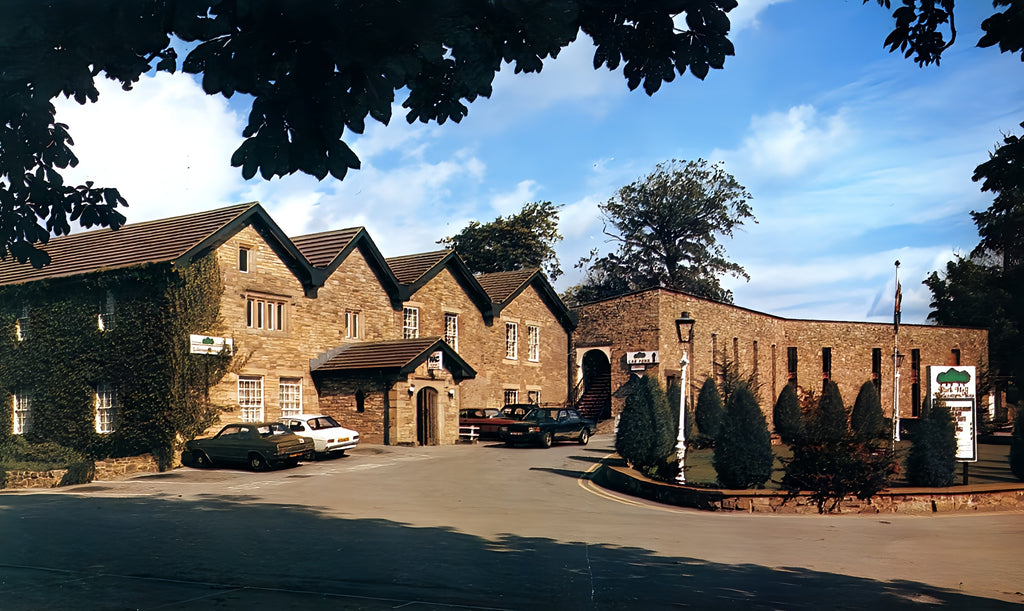
The following year, Bass Brewers acquired a “substantial interest” in the estate for “joint operation and future development”. The indoor show-jumping arena became an outdoor arena and opened later in 1974. Known as ‘Arena North’ it hosted the 1974 International Horse Show and went on to become one of the leading equestrian centres in the country.
Also that year a squash club was opened, along with a swimming pool, sauna and all-weather tennis courts. The banquet hall started hosting popular medieval dinners.
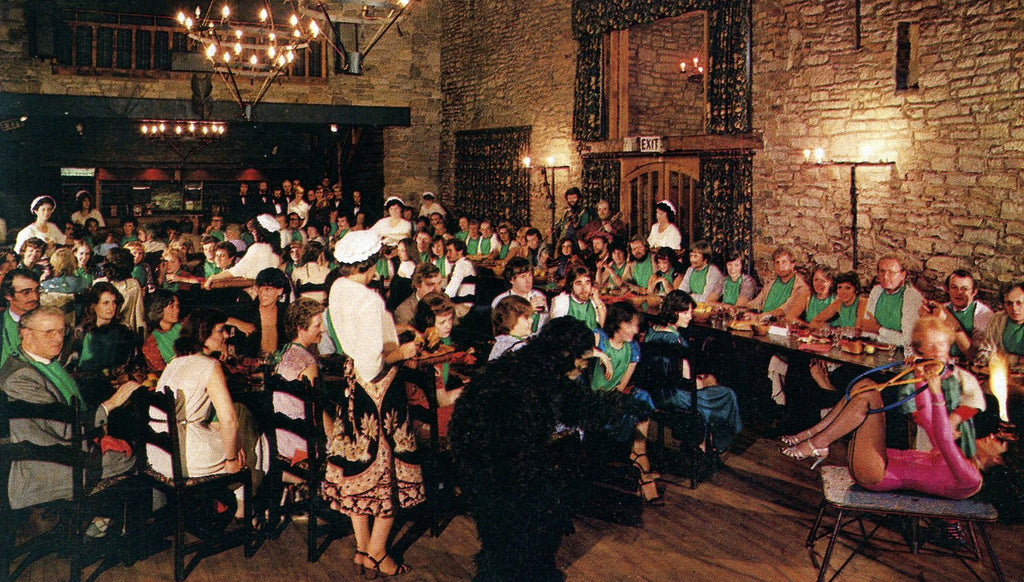
In January 1975 Bass took over the entire estate and Rigby returned to managing his construction business. Park Hall continued to flourish and the cabaret room became one of the top venues in the North West attracting all the big names of the day including Tommy Cooper, Les Dawson, Cannon & Ball and Bruce Forsyth.
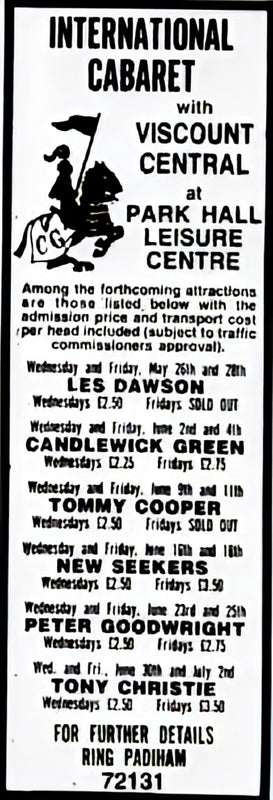
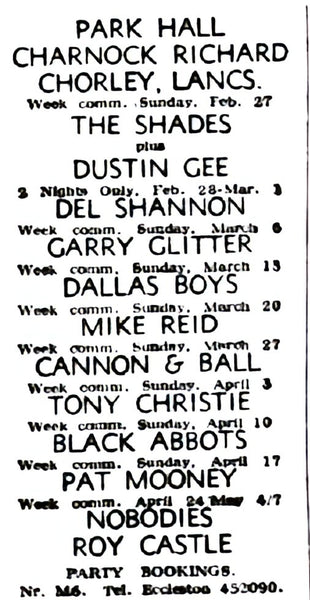

Folk music festivals were held at the Arena in 1976 and 1977 with attendees camping in the grounds overnight. But both events were later described as “financial flops” due to the wet weather. A third festival was planned for 1978 but was cancelled at the last minute after headliners Lindisfarne pulled out saying it was “badly organised”. Promoter Bryan Adams said he would be looking at other venues “further south”.
The arena was also used for trade shows and other large outdoor events. The BBC used the arena to film episodes of the popular ‘It’s a Knockout’ TV show in 1976, 1978 and 1980. In 1978 it was even used to film scenes for the MGM movie ‘International Velvet’.
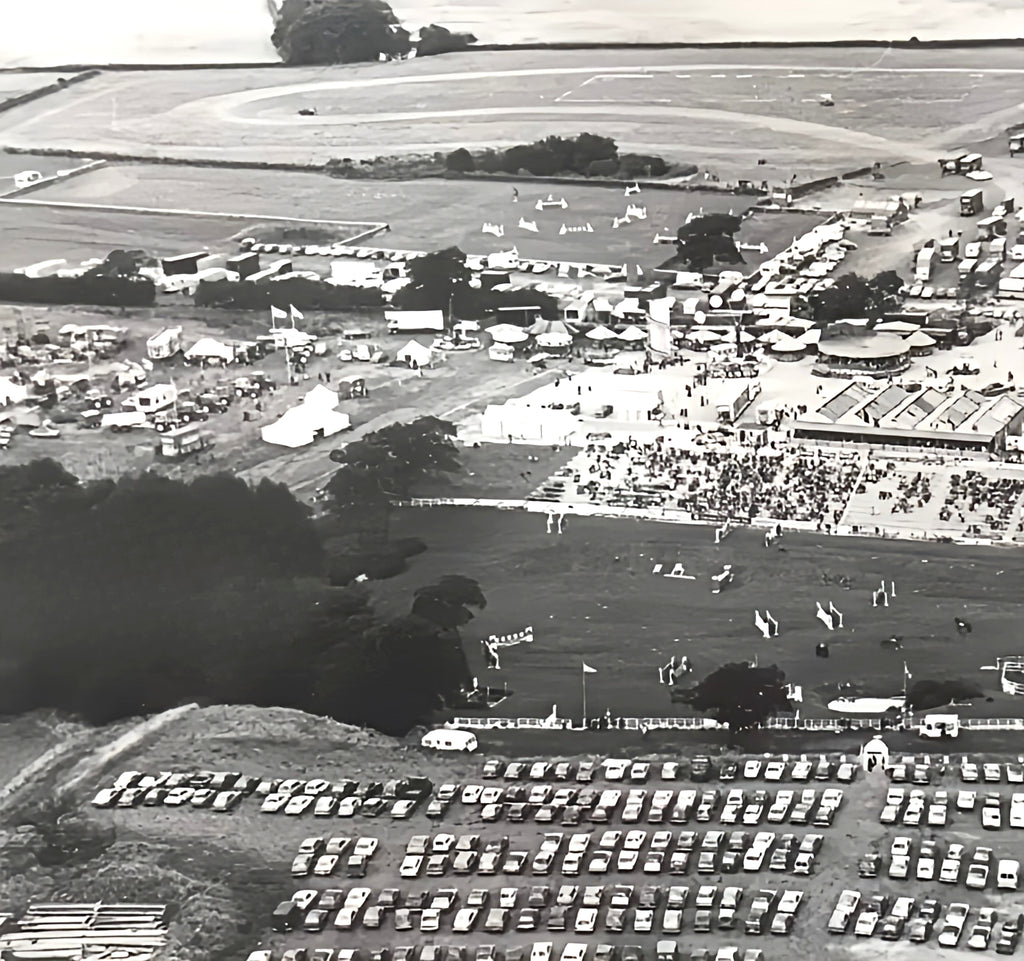

In 1980 the cabaret club was refurbished and renamed as Silver’s Nightclub, but continued hosting regular live acts. A large exhibition pavilion was built which was used for conferences and trade shows, along with popular antique markets every Sunday.
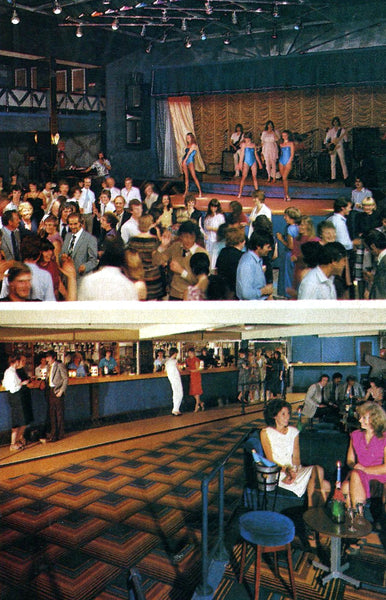
In 1980 Bass acquired Pontins holiday camps, run by Trevor Hemmings, and moved the Pontins head office to Park Hall – it even appeared in the 1982 Pontins brochure
Various parts of the site were sold or rented out to third parties. A Dutch company called Bloemendaal built the UKs largest enclosed garden centre. An aquarium was also added. But despite all this, the site was said to losing money, around £250,000 per year, and Bass wanted out.
Rigby bought it back in 1982 and admitted the show jumping arena was “not the best way of making money”. He worked on building up the conference side of the business, adding new meeting rooms and facilities for up to 750 delegates.
Park Hall & Camelot Theme Park
The show jumping arena was closed and the land was used to build a small medieval theme park which opened in 1983, and known as Camelot. “We opened the place in four months at a cost of £60,000 and charged people 40p to go in” said Rigby “I remember me and my son standing on the gate taking money. Then it just snowballed. There was a lot of stuff there but it was made out of second-hand telegraph poles and goodness knows what else. But we worked hard and it looked good”. Rigby continued to enlarge and improve the park with new rides and attractions every year.
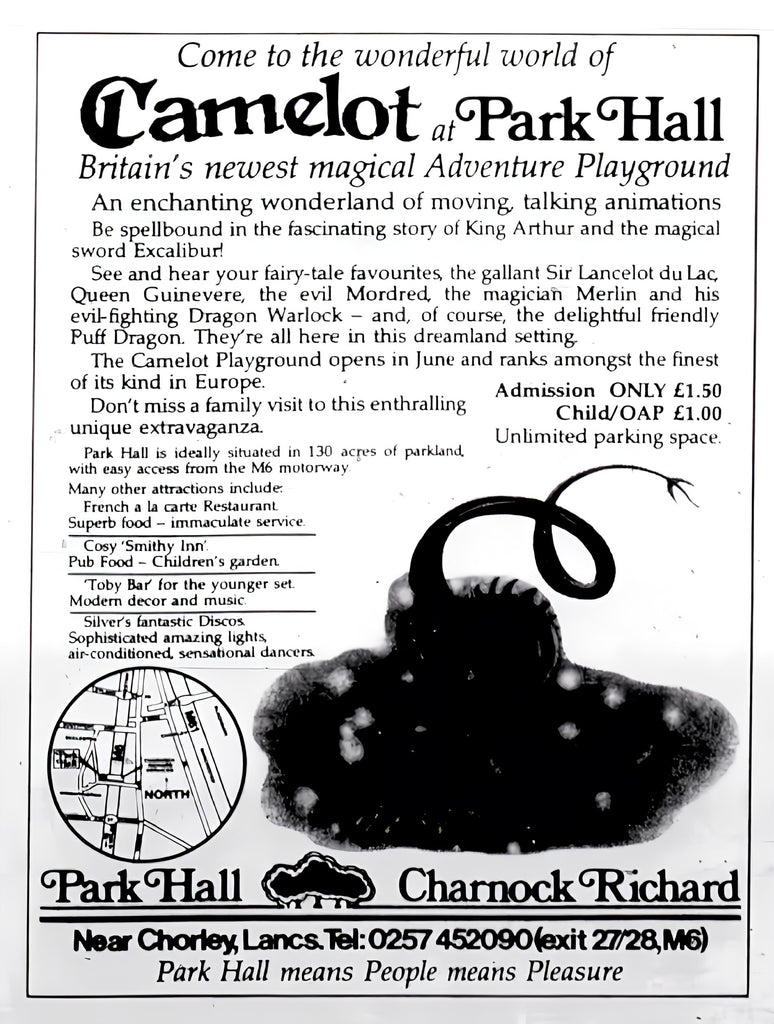
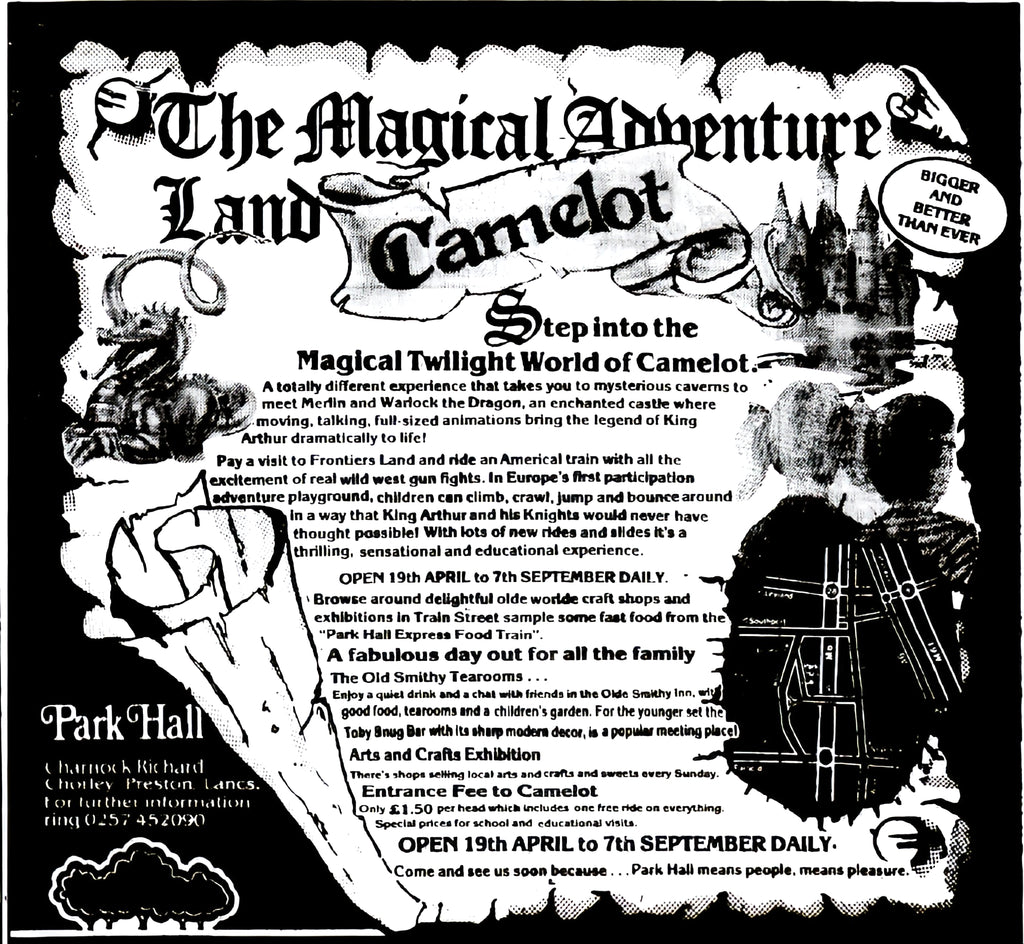
In 1985 Rigby floated the company on the stock exchange and raised £500,000 which would be used to construct a new Spanish Village, a development of 59 holiday apartments built in the style of Mediterranean villas. Rigby retained a 65% shareholding.
In January 1986 Granada Television made a surprise bid of £6.7 million for the entire estate. Rigby accepted, and agreed to stay on as a board member and advisor.
A visit that year by Which magazine described Camelot as “scruffy, poorly signposted and with some attractions in need of upgrading”. They said the toilets were “none too clean” and the catering was poor, with limited choice. A Camelot spokesman agreed that “certain areas needed improvement” and said the park was being refurbished and redesigned. Later that year the Spanish Village was opened.
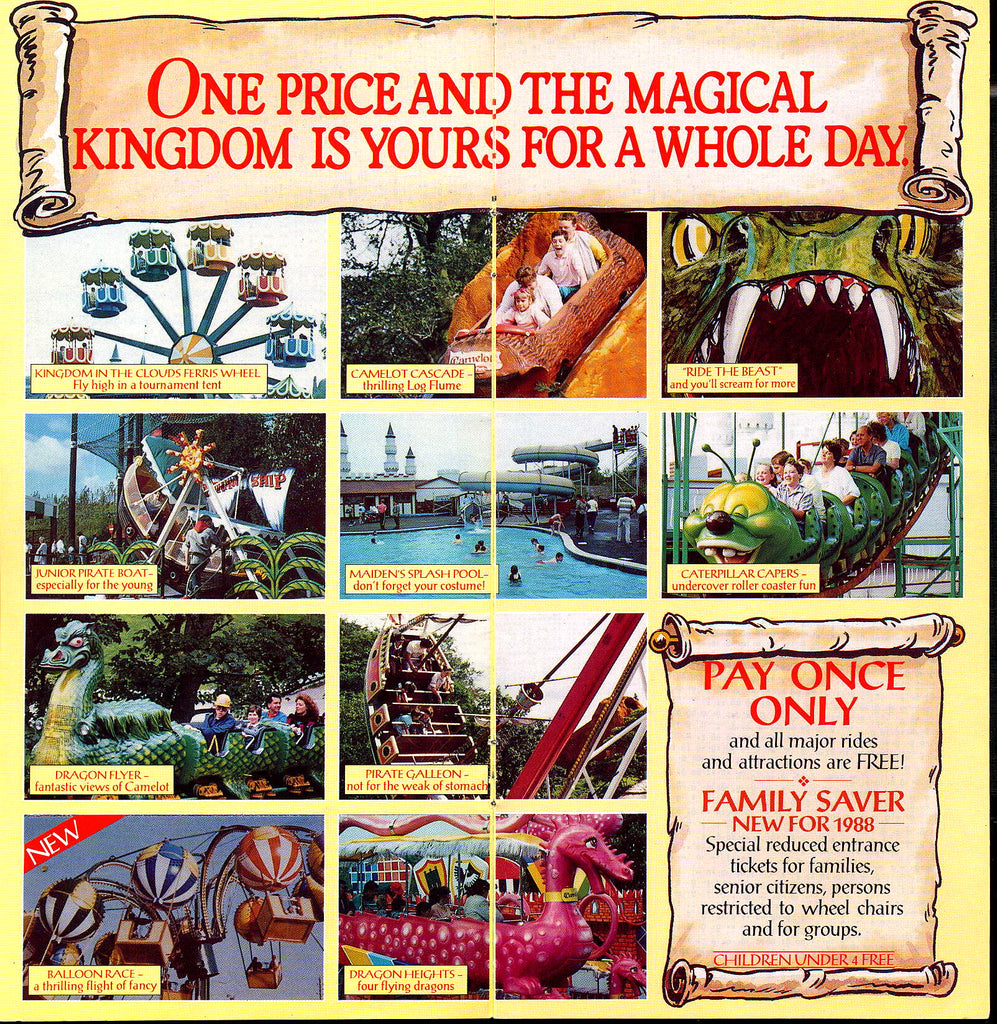
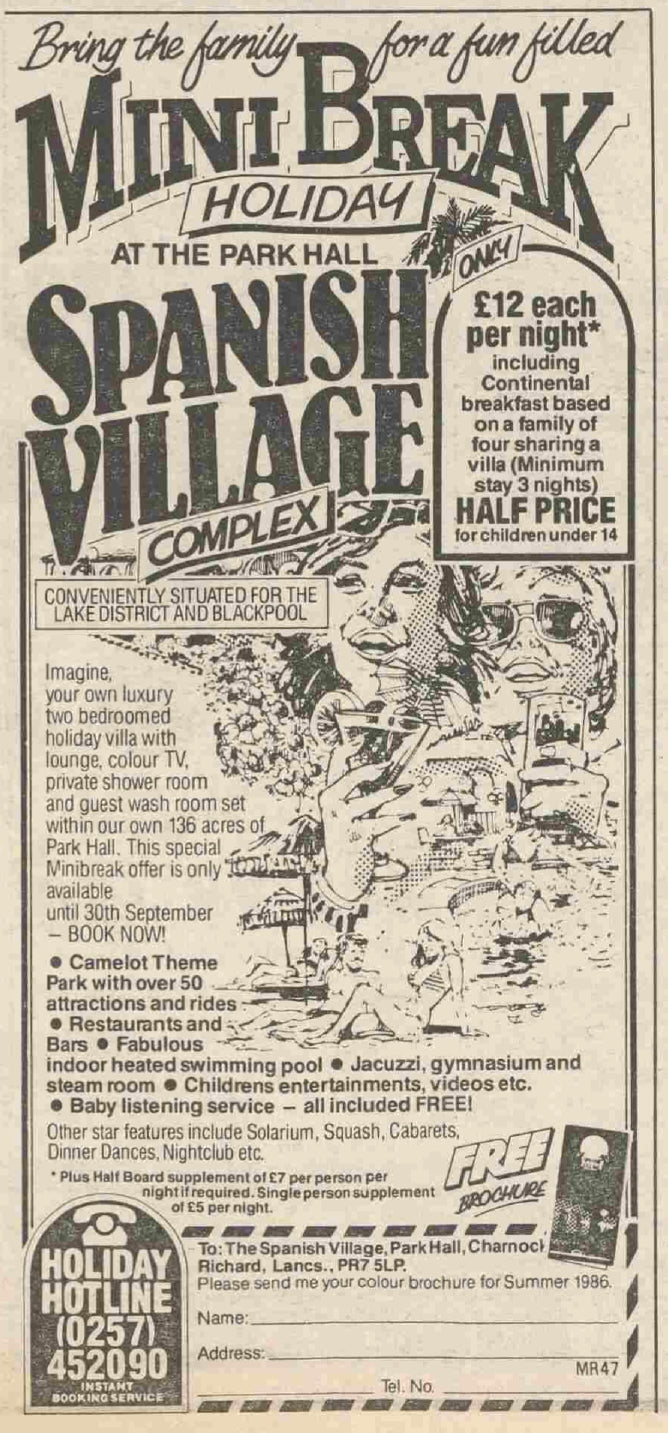
A few months later Granada acquired the failed Britannia Park project near Ilkeston, and Rigby was put in charge of redeveloping the site. This opened in 1987 as the American Adventure theme park. That same year Camelot was almost doubled in size with several new attractions being added. A new 55-bedroom hotel was built next to the existing hotel, offering free theme park admission to all guests. They even had character dining.
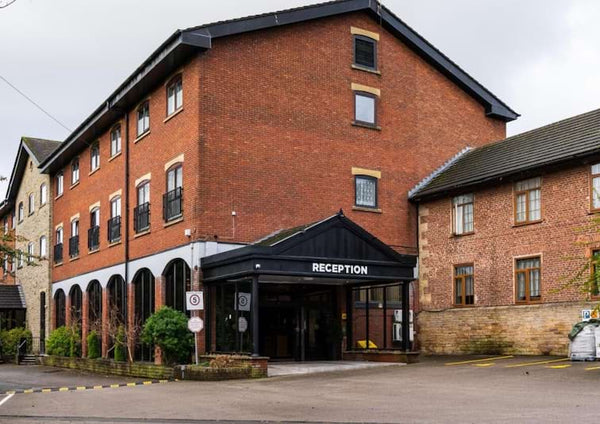
In early 1988 Rigby cut ties with Granada and later that year he bought Windsor Safari Park for £19 million and started redeveloping the site with an African theme, His Themes International company also took over an old cotton mill in Eccleston where several more businesses were established, including an antiques shop called Bygone Times. He also bought the George & Dragon pub in Billinge, site of the infamous Helen McCourt murder the previous year.
In 1989 the Park Hall hotel was rebranded under the Best Western name. The Bloemendaal garden centre closed in the early-1990s, although the buildings remained abandoned and derelict for at least another decade.
In January 1992 Rigby’s Themes International company went bankrupt with debts of £55 million. He lost everything, except for his house and a nearby pub. Bygone Times is still open today under new ownership.
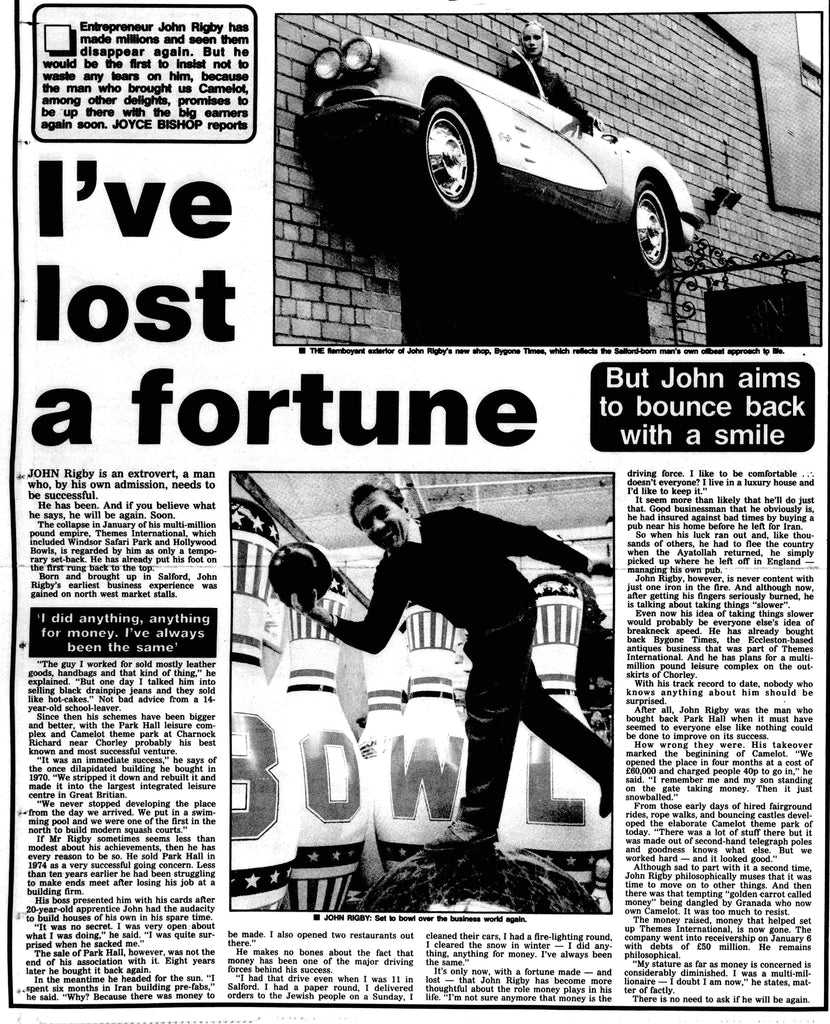
Meanwhile, Camelot was going from strength to strength and was attracting 600,000 visitors a year. The nightclub remained hugely popular.
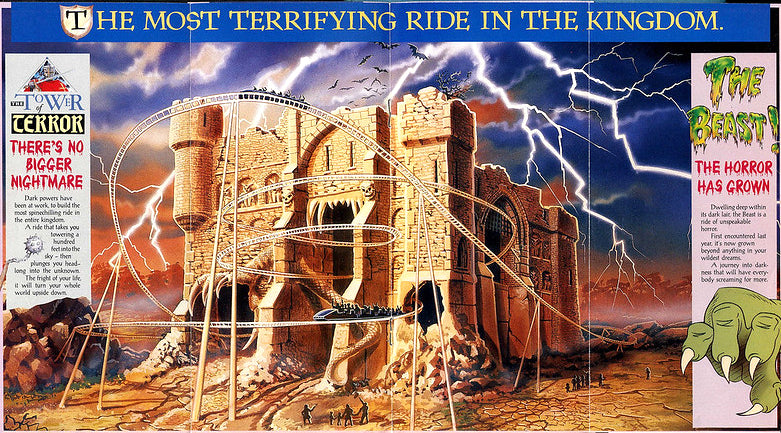
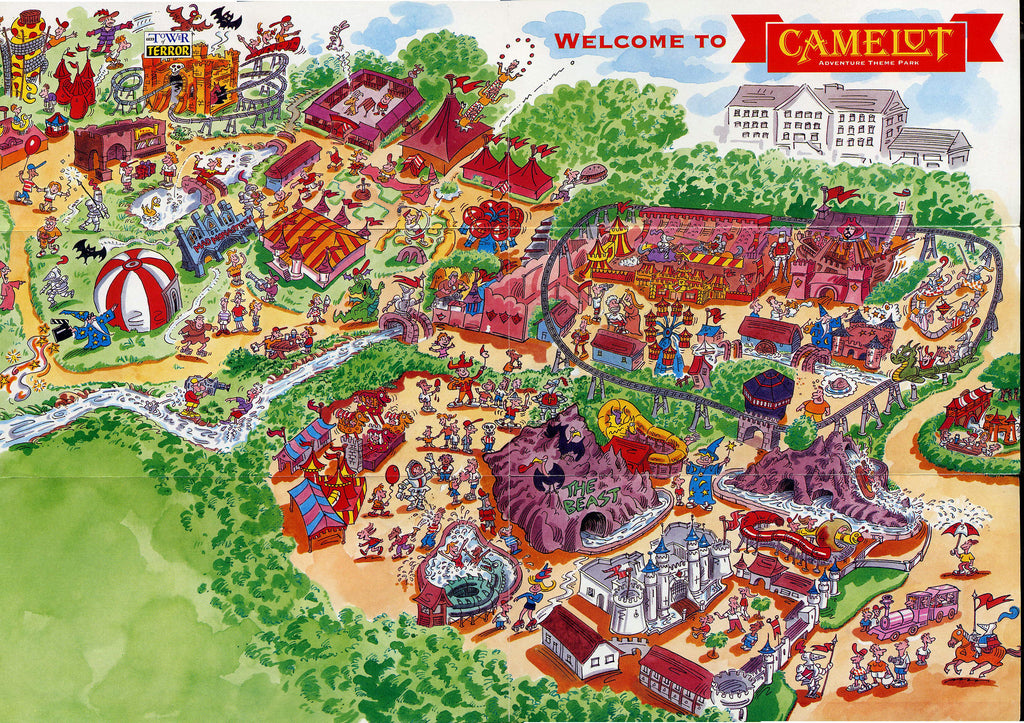
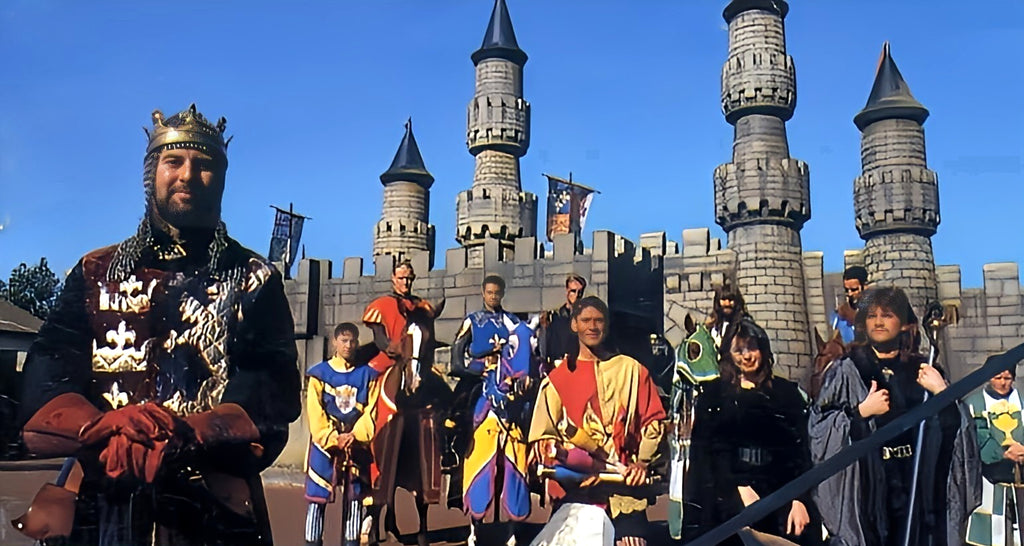
In 1998 Granada were looking to exit the theme park business and sold the entire Park Hall estate in a management buyout for £14 million. The new company was led by four previous Granada executives and was known as Prime Resorts. They soon announced a £3 million investment programme but the following year, two of the executives were made redundant and the company said “a substantial increase in revenue and visitor figures have not been fulfilled.”
The nightclub needed expensive repairs so it was closed down, and plans were drawn up to convert it into 30 hotel rooms. But three years later it was refurbished and reopened.
In 2001 a ride operator on the Gauntlet roller coaster was killed and Prime Resorts was charged with breaching health and safety laws
In July 2002 Which magazine returned and gave Camelot one star out of five for overall quality, family appeal and value for money. The nightclub remained popular but the teen discos were cancelled in 2003 following “violent scenes”
In 2004 Prime Resorts stated that “the theme park is likely to close in the next five years if visitor numbers continue to fall” and applied for planning permission to cover the park with housing. The plans were rejected. Visitors to the park were now around 300,000 per year.
In 2009 the Park Hall estate went bankrupt. The hotel and Spanish villas were acquired by the Lavender Group, but retained its Best Western branding. The theme park, and most of the surrounding land, was bought by the Story Group, a property development company based in Carlisle.
The theme park was rented out to former Prime Resorts chief executive Roy Page, trading as Knight’s Leisure, and remained open for another three years, finally closing for good in 2012. Most of the rides were sold off and the derelict buildings became a popular spot for urban explorers. In 2021 most of the remaining features and structures were bulldozed.
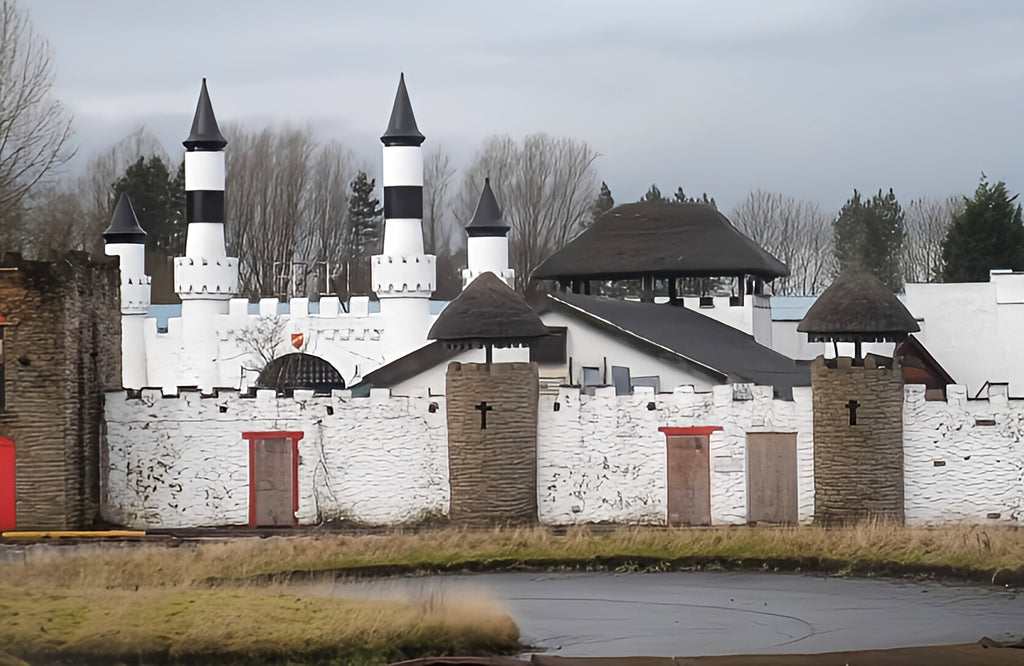
The Story Group have since made various planning applications to cover the site with housing but all applications have been rejected.
The Park Hall Hotel was sold in 2020 for £3 million but closed suddenly in Feb 2022 with debts of £960,000. It reopened with new owners in June 2023 after an extensive refurbishment, and now carries the Radisson name. The Spanish Village apartments are next in line to be refurbished.
Since 2022 the old theme park site has been used as a Halloween walk-thru horror experience called Scare City “a terrifying experience with live actors, detailed sets, atmospheric sounds and a spine-chilling setting.”

Leave a Reply